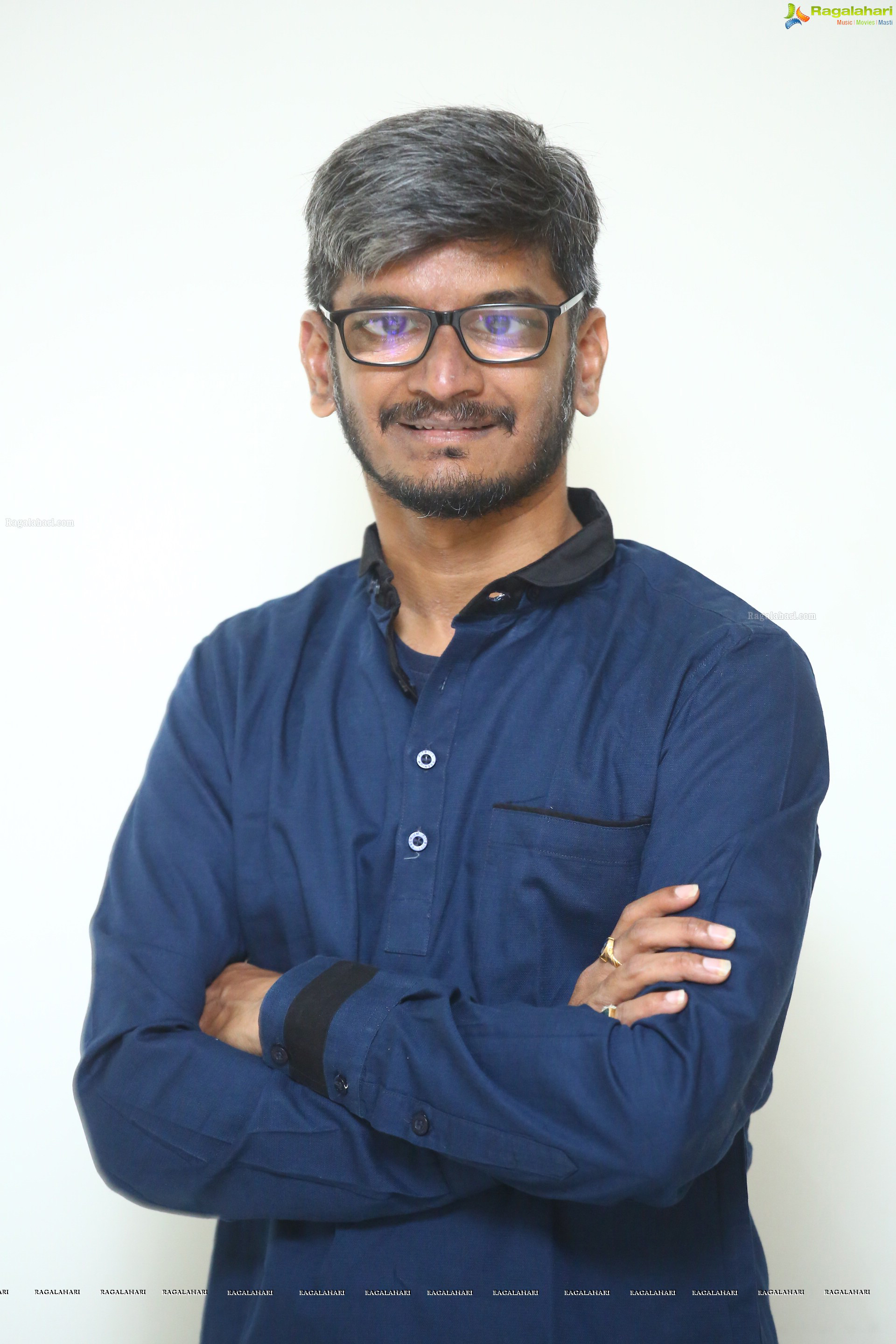'Sarkaru Vaari Paata' will be released in theatres on May 12. In this interview, lyricist Anantha Sriram talks about writing all five songs in the movie, director Parasuram Petla's vision, the controversy surrounding the way singer Sid Sriram pronounces Telugu words, the money made by lyricists of hit songs, and more.
 My initial days as a lyricist were a breeze. I didn't have to go through too much struggle to make a mark in the film industry. Since the beginning days were a smooth affair, expectations went up. Some songs become successful just like that. Other songs don't fetch you much recognition. A lyricist may have to wait out for years to get his next big hit.
My initial days as a lyricist were a breeze. I didn't have to go through too much struggle to make a mark in the film industry. Since the beginning days were a smooth affair, expectations went up. Some songs become successful just like that. Other songs don't fetch you much recognition. A lyricist may have to wait out for years to get his next big hit.
'Inkem Inkem Kavala' song from 'Geetha Govindam' became a record-setting song by logging 100 million views. It took me another three years to score another big hit (in the shape of 'Kalaavathi'). The pandemic put a spanner in the wheel. More than success, I value consistency.
Director Parasuram Petla felt very happy with my song 'Inkem' from 'Geetha Govindam'. I ended up writing all songs in 'Sarkaru Vaari Paata' in an unexpected way.
The song 'Penny' brings out the male lead's characterization. It says that money is money, no matter to whom it belongs. The hero is a bit arrogant in this song. 'Kalaavathi' is about how soft an arrogant person becomes when he falls in love with a woman - in front of that woman. The title track shows that the hero believes in his intelligence more than weapons. There is a mass song that will be released soon. It doesn't have much to do with the story, though. There is also a melody titled 'Murari'.
'SVP' is my second movie with Mahesh Babu garu, the first one being 'Seethamma Vakitlo Sirimalle Chettu'. This is my third one with director Parasuram. Unlike his previous movies, which were light, the director has made a high-voltage entertainer this time. His detailing is meticulous. He wrote every scene with so much care and thought.
There are no wrong pronunciations in the song 'Kalaavathi'. Playback singer Sid Sriram and I sat together in order to work on the pronunciation in detail. Some voices are unusual and some words uttered by them sound differently. So much has been made about how Sriram has pronounced 'Come on.. Come on' in 'Kalavaathi'. The singer has used an American accent. In the song 'Chitti nadumune choostunna' from 'Gudumba Shankar', 'Come on' was pronounced in a similar fashion in the rap portions.
The director's guidance and inputs are the maximum when it comes to songs. The hero does have a say sometimes but he does it through the director.
The journey of 'SVP' started in September 2020. I took months to write each of the songs. One of the songs is a montage one. The rest four are regular songs. I haven't listened to a story of this sort in 5 years. I don't think there will be another story of this stature in another 5 years. It is a great mix of message and entertainment. I think this film will be a stand-out one in my filmography.
Thaman has excellent command over 'laya'. The lyricist has to pen the right sort of lines. 'Ukaram' needs to be limited to melodies. 'Akaram' is what suits Thaman's musical style. Because we had enough time, we had the time to fine-tune some of the lines. Several drafts were prepared and elaborate notes were made.
If I have to write a song for a romantic/steamy situation, I don't shy away from doing so. I am not embarrassed to write such songs. It would be embarrassing to write a romantic song for a TV serial watched by the family audience. Cinema is a different thing. Youngsters expect a few commercial ingredients. So, how far you go on lyrics depends on the format (feature film, serial, etc).
Nobody can accurately anticipate the scale of success of a song. A lyricist can gauge whether the listener is going to like a song or not. Specifics can't be estimated.
I want to say that 'Audiences' is the wrong usage. 'Audience' is the singular word in English. We need to stop using wrong usage.
Lyricists are making good money these days because the intellectual property rights regime is strong. If a song becomes a big hit by garnering millions of views, the money made by the lyricist doesn't stop soon.